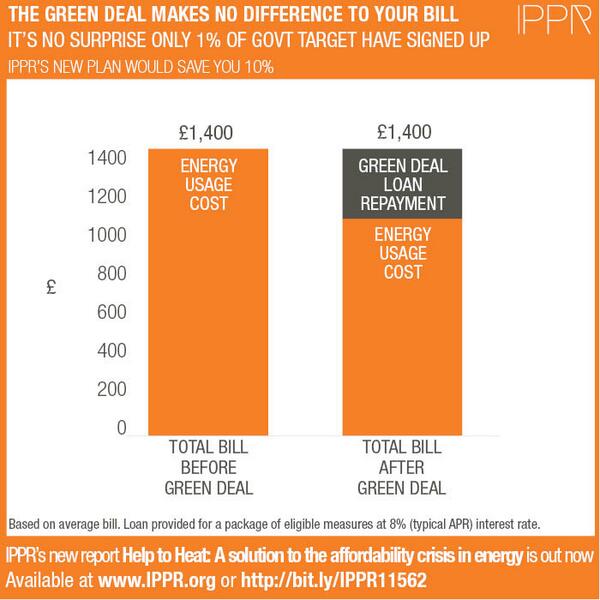
Our enemy is not global warming. In Britain, people are dying of the cold
Truther
Fanciful predictions of all the deaths that will result from climate change, decades into the future, are regularly thrown into public debate. Less attention has been given to a real statistic from the here and now, released by the Office of National Statistics this week, which shows the effects of one of the policies designed to tackle climate change: high energy prices. It emerged this week that there were 31,000 ‘excess’ deaths in England and Wales last winter, almost a third more than the previous year. Almost all were, in effect, British pensioners who died of the cold.
It’s odd: Britain is a rich country with a massive welfare state — and we know how to heat and insulate houses. We also send millions away in overseas aid. Yet somehow we have failed to find a way to stop our own people dying of the cold. Each winter, we tolerate a death toll which runs into the tens of thousands. Worse, we seem to have become inured to it.
The 2003 heatwave was blamed for 2,000 deaths, and treated as a national emergency. Sir David King, then chief scientific officer, declared that this meant climate change was ‘more serious even than the threat of terrorism’.
Since then, some 280,000 Brits have died from the cold and barely 10,000 from the heat. We have been focusing on the wrong enemy.
Yet still the government seems little bothered by the link between green levies, which are already jacking up our heating bills, and rising winter deaths. Whenever the Climate Change Secretary is presented with the charge that climate levies are hurting the poor he always makes the same claim: that one of the main roles of the levies is to subsidise home insulation schemes for low-earners, and that by doing so their energy bills will actually fall. This is a dubious assertion in that it relies on the elderly and the poor all being able to access subsidised insulation schemes. Many cannot.
The green schemes always look better on paper. The proposed ‘Green Deal’ was supposed to have led to the installation of insulation in 10,000 homes by the end of the year. It emerged this week that barely a tenth of this figure, 1,170 households, have been helped. Little wonder – the IPPR think tank (below) has shown that Green Deal repayments on the extra insulation will add back whatever is saved in energy payments. People are no better off, which is why so few have signed up.
It is hard to escape the conclusion that by adding the cost of levies onto fuel bills (rather than paying them out of general taxation) the Blair and Brown governments hoped to deflect blame to the energy companies. And the Tories signed up to this agenda by voting for Ed Miliband’s Climate Change Act.
Far from helping the poor, a remarkable amount of money raised in green taxes seems to land at the feet of the rich: wealthy landowners who rent their land to subsidised wind farms, and well-off homeowners who can afford to fit solar panels to their roofs or to invest in ‘green’ central heating systems such as ground-source heat pumps and woodchip boilers. This, in itself, is a scandal. But we are in a situation where people are dying because they cannot afford to heat their homes. That fact that most of the 31,000 who perished last year are over 75 years of age seems to take the political sting out of this scandal. It is as if elderly lives are somehow less valuable.
Reports that David Cameron now refers to such initiatives as ‘green crap’ suggest that he has finally come round to appreciating the potential political cost of green stealth taxes on the poor. The failure of his famous wind turbine on his house in Ladbroke Grove ought to have alerted him to the false claims made of green energy. But it is no credit to him that he previously subscribed to such measures with enthusiasm. The price of ‘green crap’ is reflected not just in higher energy bills, but in the fate of pensioners who dare not turn on the radiator after having faced punitive hikes in their heating bill.
For years the Prime Minister has stuck to the conceit that the Climate Change Act would cut energy bills in the longer run by bringing forward investment in renewable energy which, though it might be more expensive now, will steadily fall in price while the cost of fossil fuels soars. It is becoming more apparent by the day that this assumption is deeply flawed. Fossil fuel prices are no longer soaring; on the contrary, in the US they are falling as fracking reduces the cost of extracting unconventional reserves. Global temperatures, too, have declined to follow the predicted path on which the Climate Change Act was justified. While other countries loosen their carbon reduction targets Britain remains legally bound to targets which threaten to render industry chronically uncompetitive.
It is highly desirable that carbon emissions fall — as indeed they have in the US as gas pushes out coal as the main form of electricity generation. But it shouldn’t come at the cost of economic growth or the welfare of the old and poor. If David Cameron really wants to tackle ‘green crap’, sooner or later he is going to have to tear up the Climate Change Act — and replace it with a policy aimed at lowering bills and saving lives.

